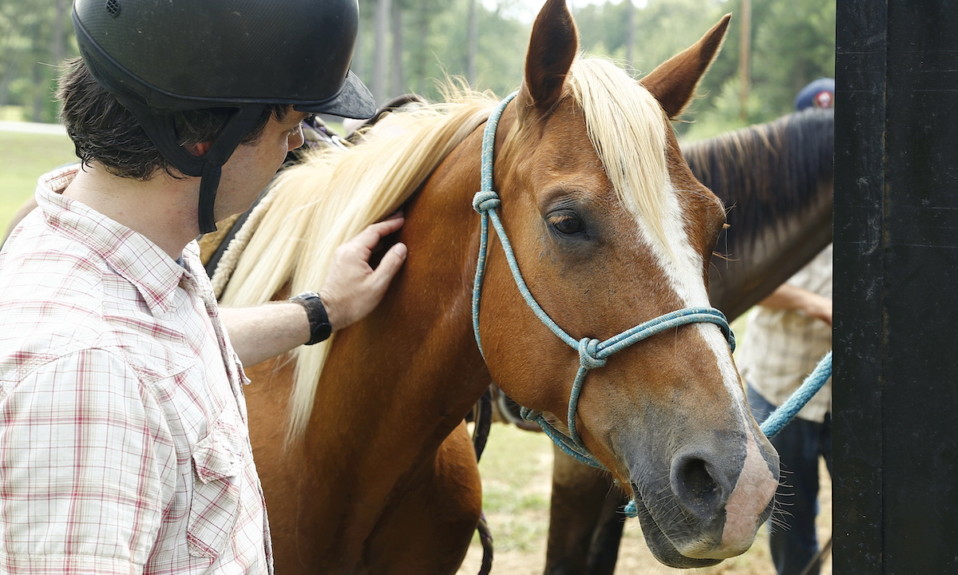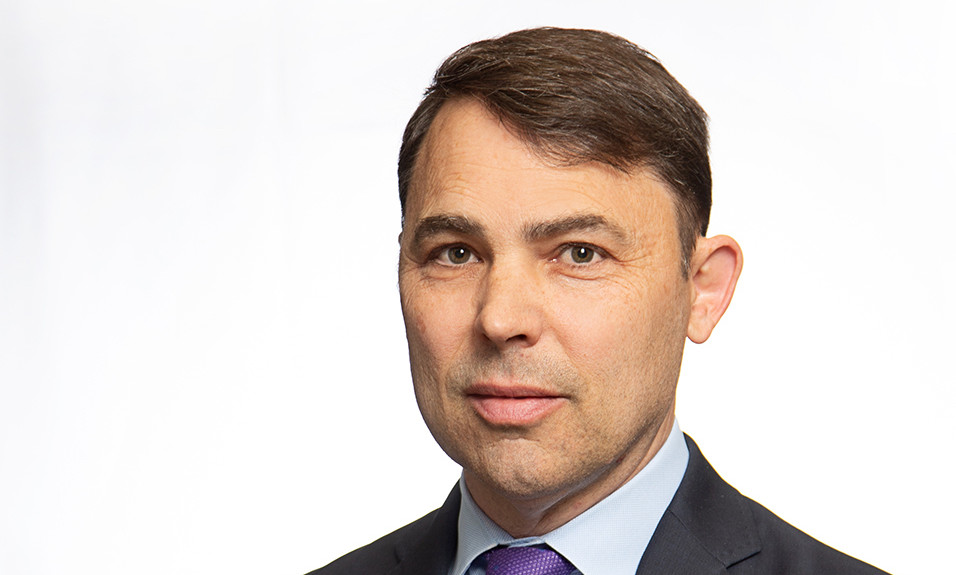Substance use disorder patients have something bordering on a cathartic experience when they immerse themselves in the therapy
This sponsored content was produced for Oxford Treatment Center by the Treatment Magazine Content Studio.
By Erin Gilday, Treatment Magazine Content Studio
Think equine therapy for substance use disorder (SUD) is just a bunch of horsing around? This world-class addiction treatment center with a strong focus on quality equine therapy will change your mind about the surprisingly effective treatment modality.
“A lot of people don’t understand equine therapy. One of the biggest misunderstandings people have is that it’s not evidence-based,” says equine facility manager Marty Murry, who helps lead equine therapy groups at Oxford Treatment Center from an impressive 10-stall, two-story cedar barn. “Most people that I run into, they think it’s going to be a work program, ethics, scoop-the-poop, tend-to-the-horse type of thing. They never see it coming.”
Instead, SUD patients are treated to an immersive and—for some, cathartic—experience with the horses at Oxford.
“A benefit with substance use disorder is the horse itself is an addict,” Murry says. “They are addicted to the sugar in the sweet feed. We set up scenarios showing what the horse will do to get their drug of choice. That’s when patients will really start recognizing their own behaviors. A lot of times we’re going over the same information [about addiction and recovery] that’s already been covered in a more traditional teaching environment. But when they’re down there, they can see it, they can feel it, they can touch the horse. It gives that added boost to understanding, and it’s emotional. Lots of people cry because it automatically relates to them.”

At Oxford, Murry couples horse demonstrations with individual, hands-on equine classes. While all patients receive equine therapy at least weekly, many elect to sign up for classes throughout the week.
“The equine program is our calling card,” says Murry, whose heartfelt enthusiasm for the modality is nothing short of contagious. “[With] a lot of people with SUD, they come in [and are] pretty well hopeless. They’re really skeptical about how a horse is gonna show me or teach me anything. Then they have that ‘aha’ moment. It’s pretty mind blowing.”
The horses do more than just act as a visual teaching tool. Murry is quick to point out that equine therapy is also demonstrated to reduce anxiety, lower blood pressure, ease feelings of shame or judgment, increase relaxation and reduce resistance to treatment. “[Patients] feel that they’re not in a normal treatment facility. You see a lot of that resistance to treatment decrease” with equine therapy, he says.
How Equine Therapy Works
The mechanism that creates this therapeutic atmosphere is known as heart coupling. Horses have the ability to detect the heartbeats of other animals, including humans, from many feet away. Through heart coupling, horses adjust their own heartbeats to the information they receive from the electrical activity of the hearts of others. In the wild, this helps horses to detect danger more easily. At Oxford, it helps patients to recover from behavioral health conditions like addiction. “When we enter a horse’s personal space, they accept us and our heart rate,” says Murry. “That’s what causes you to calm down and helps you focus.”
The equine facility isn’t the only unique feature of the Oxford Treatment Center. Nestled on a 110-acre lot in the center of a national forest in Etta, Miss., just outside of Oxford, SUD patients learn recovery life skills and receive comprehensive treatment in a setting that looks more like a summer camp than a medical facility. Plus, patients enjoy classes and demonstrations with the horses—currently 13 in number—regardless of weather. The facility boasts an indoor and outdoor arena, which makes equine therapy comfortable year-round.

More good news for horse lovers: Oxford Treatment Center isn’t done expanding the equine therapy program.
“We definitely hope to increase our equine programming in the future,” says Tori Ossenheimer, director of experiential programming at Oxford. “We have a veteran’s program through the VA’s Community Cares Program now, and we’d like to continue to individualize our equine services based on needs at the facility.”
Do you know someone who might benefit from equine therapy for addiction treatment? Click here to learn more about the equine therapy program at Oxford.














